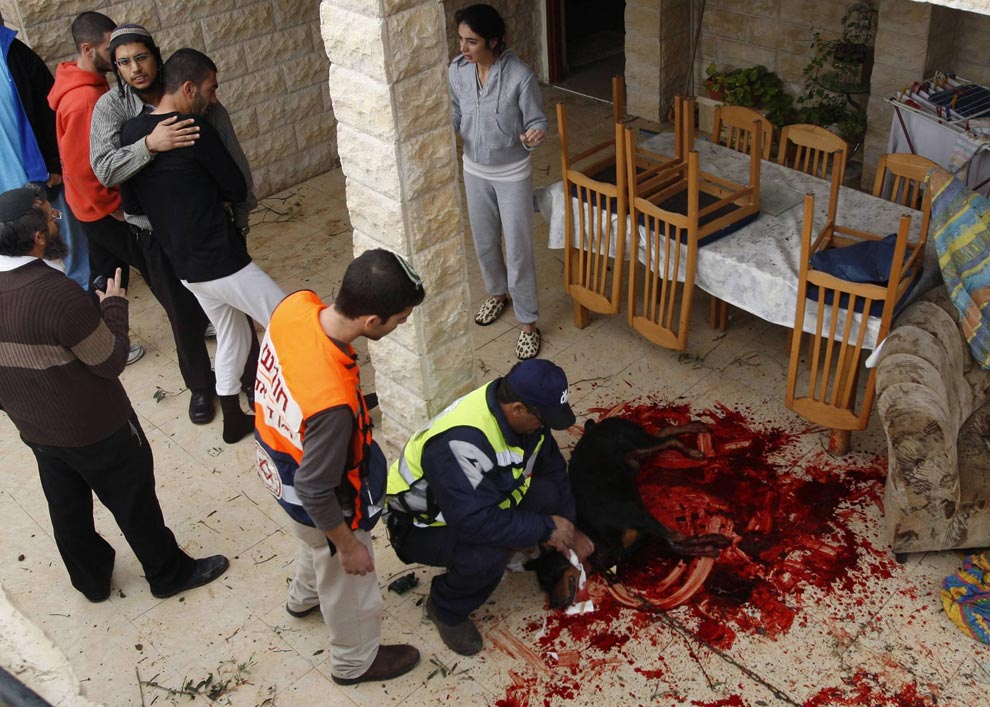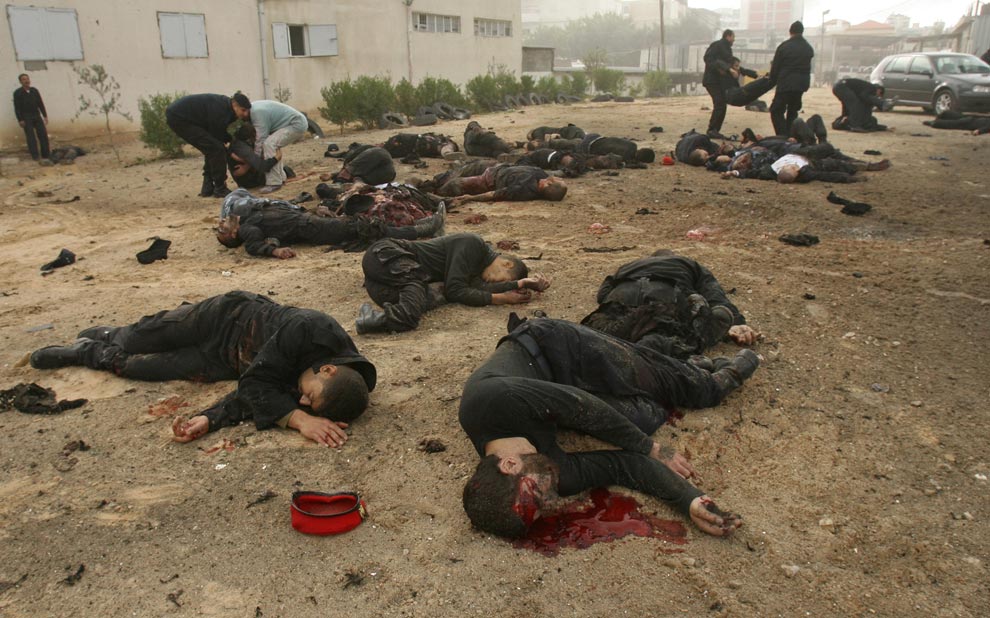 Only Dog
Only Dogالثلاثاء، 17 فبراير 2009
السبت، 14 فبراير 2009
沙 gaza is bleeding and bleeding 沙
الثلاثاء، 10 فبراير 2009
Activists seek 'Gaza abuses' probe
Human rights groups have called on Hamas officials to investigate widespread allegations of abduction, torture and the killing of Palestinians accused of being collaborators during Israel's war on Gaza. |
الجمعة، 6 فبراير 2009
الثلاثاء، 3 فبراير 2009



Deadly Israeli raids on schools take Gaza toll to 660
Israeli forces blazed into towns across Gaza striking Hamas targets and also hitting three UN-run schools in attacks that killed at least 48 people and sparked urgent new ceasefire calls.
While troops battled Islamist militants inside Gaza City in the heaviest fighting of the 11-day-old offensive, Hamas made its deepest rocket strike yet into the Jewish state defying Israeli efforts to halt the fire.
As the Palestinian death toll surged above 660, Arab states pressed for a UN Security Council resolution condemning the onslaught, but Israel rejected ceasefire calls by French President Nicolas Sarkozy and other leaders.
However, Prime Minister Ehud Olmert decided to open a “humanitarian corridor” into Gaza early Wednesday to allow residents to receive aid.
UN chief Ban Ki-moon said he was “deeply dismayed” by the strikes on the UN schools and called them “totally unacceptable.”
The United Nations demanded an investigation after tank and air assaults hit the schools, run by its Palestinian relief agency, UNRWA.
At least 43 people sheltering at the Jabaliya refugee camp school in northern Gaza were killed, emergency services said. The UN confirmed at least 30 dead and 55 wounded in the shelling.
The Israeli military said a preliminary inquiry indicated that mortar rounds may have been fired from the Jabaliya school.
Earlier two people were killed when an artillery shell hit a school in the southern Gaza city of Khan Yunis. Three people also died in an air strike on another school in Gaza City’s Shati refugee camp, medics said.
UN Humanitarian Coordinator for the Palestinian territories Maxwell Gaylard said Israel had the GPS coordinates of all UN buildings in Gaza - including schools.
“Neither homes nor UN shelters are safe” for civilians, he said and called for an investigation. “If international humanitarian law has been contravened, those responsible must be held accountable.”
Heavy fighting raged in Gaza City and around nearby Deir al-Balah and Bureij. One air raid on Gaza City killed 12 people, including seven children from the same family.
Tanks with helicopter gunship support rolled into Khan Yunis before dawn, to be met with return fire from Hamas and its allies, witnesses said.
Four Israeli soldiers were killed in two friendly fire incidents overnight and another died when his patrol was attacked on Tuesday, bringing to six the total since Saturday.
About 35 Hamas rockets were fired over the border, one striking 45 kilometres (28 miles) inside Israel — the deepest yet — and slightly wounding a baby, the army said.
Three civilians and one soldier have been killed by rockets hitting Israel since the offensive began.
Protests against Israel have spiralled worldwide and the French president led new calls for a truce as he met Israeli leaders in Jerusalem on Monday.
Al-Qaeda number two Ayman al-Zawahiri called on Muslims to attack Israeli and Western targets in revenge for the offensive.
Israeli Prime Minister Ehud Olmert reaffirmed that there can be no ceasefire until “terrorist” rocket attacks and weapons smuggling into Gaza are ended.
Sarkozy went to Damascus and Beirut and later returned to Egypt to see President Hosni Mubarak, saying there was a “glimmer of hope” for ending the bloodshed.
A Hamas delegation also arrived in Cairo.
Egypt brokered a six-month truce that ended on December 19. Hamas refused to renew the deal accusing Israel of reneging on the deal by not relaxing the crippling blockade of Gaza it first imposed when the Islamists seized control of the territory in June 2007.
Israel launched Operation Cast Lead on December 27 with a massive air bombardment of Gaza, and sent in thousands of ground troops a week later.
Since then, 660 Palestinians have been killed, including about 200 children, with more than 2950 wounded, Gaza medics say.
Israel has denied there is a humanitarian crisis in Gaza, but Olmert’s office announced that the Jewish state would open a “humanitarian corridor” into the territory.
“This involves opening up geographical areas for limited periods of time during which the population will be able to receive the aid and stock up,” his office said.
International Committee of the Red Cross operations director Pierre Kraehenbuehl said earlier that “there is no doubt in my mind that we are dealing with a full-blown and major crisis in humanitarian terms. The situation for the people in Gaza is extreme and traumatic.”
The UN Security Council was meeting in New York late Tuesday to weigh an Arab call for a ceasefire and to protect Palestinian civilians, diplomats said.
Washington has strongly backed Israel, with President George W. Bush saying any truce must ensure an end to militant rocket fire.
After talks with Sarkozy, Egyptian President Hosni Mubarak invited Israel for an urgent meeting to discuss security on the Egypt-Gaza border.
The envoy of the main players in the Middle East peace process, former British prime minister Tony Blair, earlier said that an immediate ceasefire was possible provided Israeli concerns about the smuggling of money and weapons across the border were addressed.
>>>>>>from Aljazeera.net


.gif)
.jpg)

.jpg)

